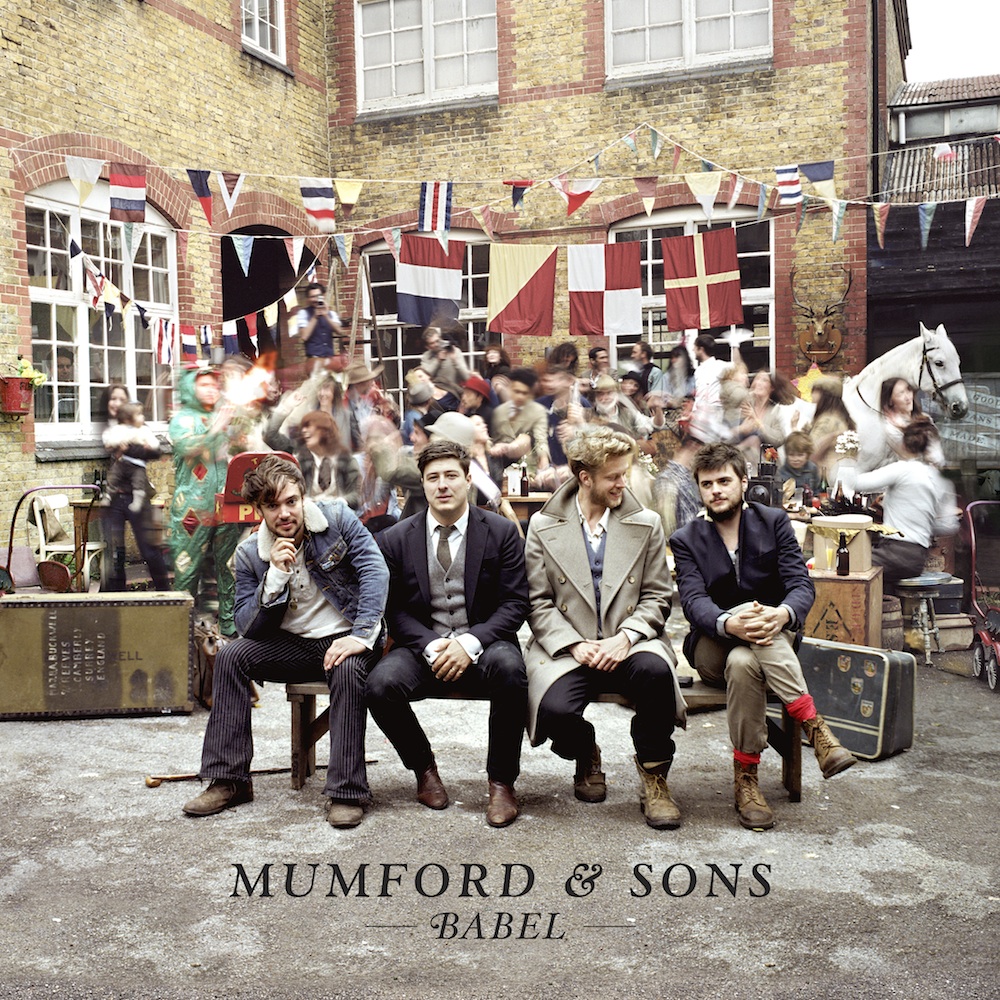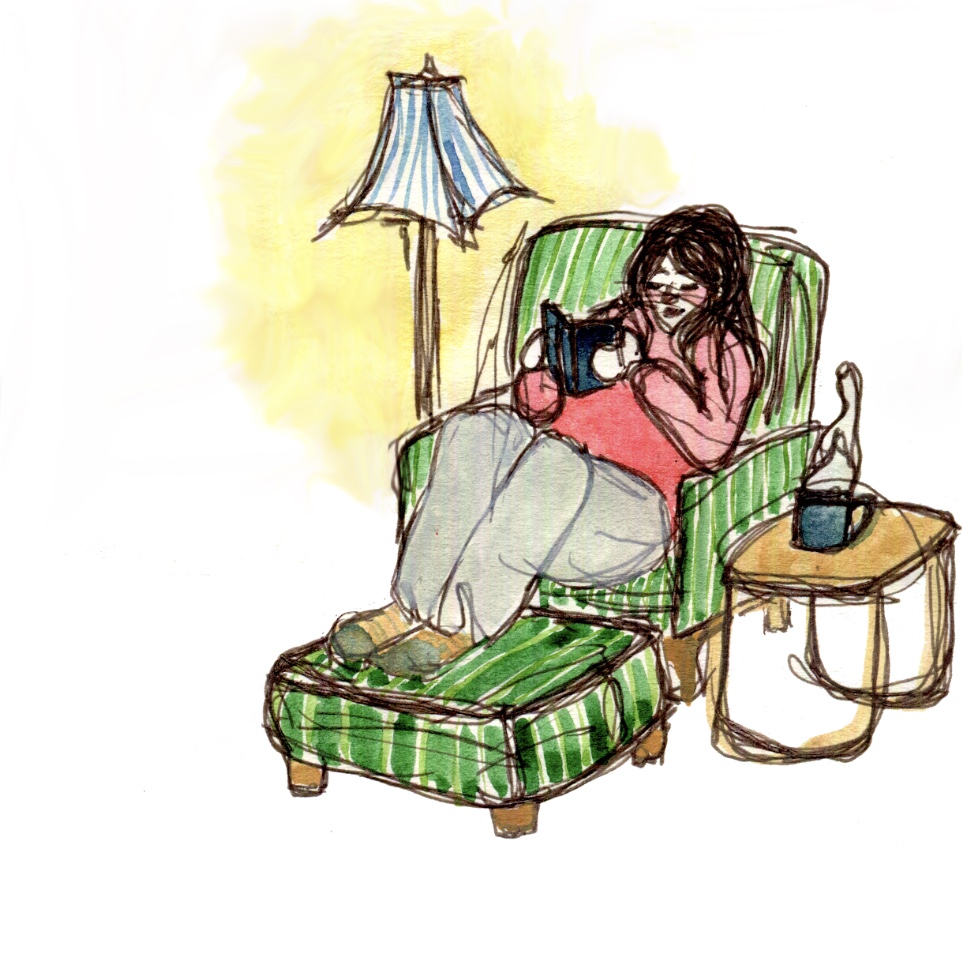In 2012, Mumford and Sons are out of place — and that’s what makes them strong. The world gets older every day, but somehow our sense of what embodies entertainment grows more and more juvenile. A secular enlightenment seems to have gripped our generation, and music is one of the arts that has devolved in its wake; the prestige of party music, dubstep and nihilistic hip-hop are all examples. I have a friend who claims there is only a handful of bands left that still play “real music.” Mumford was high on his list, and after listening to their newest album “Babel,” they’re on mine too — in ink.
Back in 2010, the album “Sigh No More,” a blended celebration of folk-rock, rose from obscurity and “Mumford and Sons” became a household name in less than a fortnight. A band and brotherhood who know how to own and hone their craft, they openly admitted to “Entertainment Weekly” that in their second studio album “Babel,” they had no desire to change their image or sound.
Transporting the listener beyond the everyday
“Babel” — pronounced “baybul” in the album’s tempestuous first track of the same name — may as well be an extension of “Sigh No More.” It’s like a lost, belated second disc. But while the tone of “Babel” is familiar, it doesn’t play it safe; it has an arguably darker edge to it than “Sigh,” if only just. Mumford’s lyrics suggest an earnestness to both understand and accept yourself, but to not stop there. In the song “Babel,” there is a message of embracing weakness and letting the walls of pride crumble around you. In addition to the riveting lyrics, Mumford starts off the album with a vengeful and jubilant din. The quartet strums along to a steady beat with their guitars, banjos, string basses, mandolins and dobros in such magnificent finality that it’s hard to believe it’s only the first track. Rarely is the stage set so fervently by a single song, and the rest of the album follows suit.
“Whispers in the Dark” plays after “Babel” with a lamenting drone, quickly escalating into an upbeat ballad that encapsulates most of what made “Sigh” great. Next comes “I Will Wait,” the single that’s currently all over the radio and follows in the footsteps of 2010’s “Little Lion Man” both in sound and lyrical relevance. “Holland Road” comes next, one of my favorite songs off the album. It’s spooky and slow, and takes you to a place beyond the everyday, which is part of the beauty of Mumford’s music. It transcends normality but doesn’t overwhelm. “Babel,” even more than “Sigh,” took me to another place and time, despite their similar sounds. “Babel” has a real zeal about it that excessively inspires.
Christian undertones and messages of hope
Several more of my favorite songs off “Babel” include “Ghosts That We Knew,” “Lover of the Light,” “Broken Crown” and “Below My Feet.” These are the tracks I think are the most unique, and that’s saying something for a band that seems to produce nothing but exceptional music. “Ghosts That We Knew” is very peaceful, and three minutes in it becomes truly solemn and pacified with a serene riff on the banjo. “Lover of the Light” is an empowering track that seems to have Christian undertones of faith and design at its foundation, though I like the live version better than the studio.
“Broken Crown” is by far the darkest track off “Babel” and features a certain curse word several times — but you know what, I wouldn’t have it any other way. The track needed that extra kick, and by no means is the word used flippantly. Mumford spews it from his mouth with an angry solace that suggests serious grief and lament. His vocal passion adds to the band’s endless legitimacy. And then there’s “Below My Feet,” which is my personal favorite off the album; the last minute-and-a-half is unbelievably heart-wrenching and pure.
Extra tracks add to overall product
The deluxe version of “Babel” features three extra tracks, only two of which are originals. Simon and Garfunkel’s “The Boxer” is renditioned with great precision, and “For Those Below” is an excellent song, though it doesn’t add much to the album overall. “Where Are You Now” is the final album track and is admittedly my second favorite song; it has a Fleet Foxes-ish sound to it and ends “Babel” with climactic subtlety.
Mumford is truly one of the last great bands of today. Thank God they’re only two albums into what will hopefully be a long and lustrous career. Times change — and so they must — but let us never forget what beauty can come from the arts, and what man can accomplish with instrument and voice. Simplicity is not always a sin when it comes to creativity, especially when speaking to people’s hearts.







